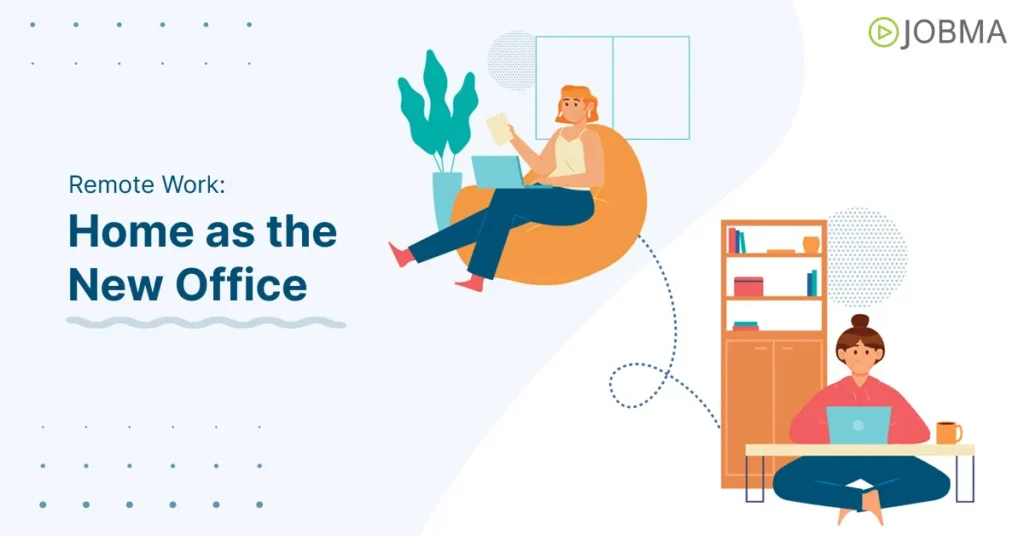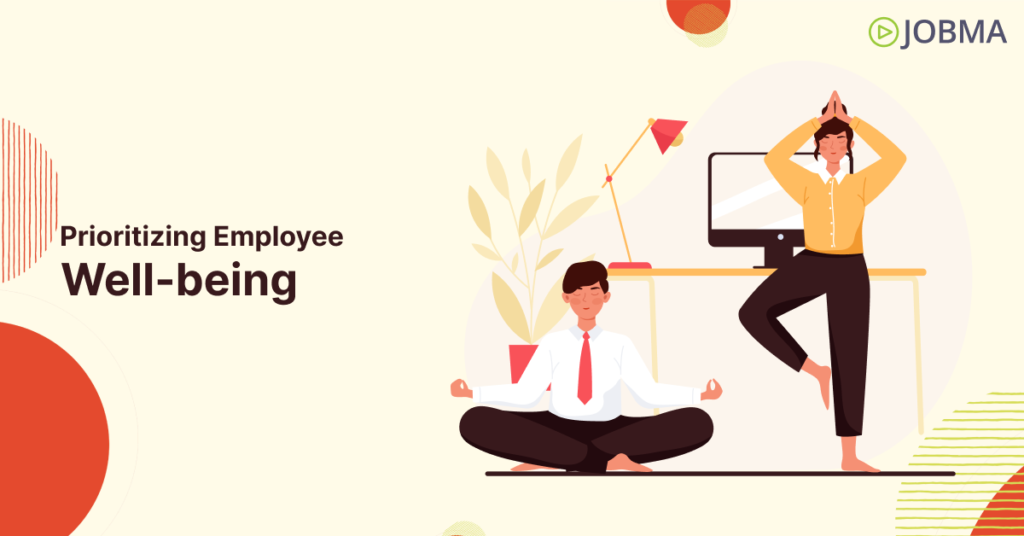Top Global HR Trends for 2024 and Beyond
The COVID-19 pandemic has had a major impact on how we live and work, forcing us to adapt in ways we never imagined. While the world is slowly finding a new normal, the lessons we’ve learned from the pandemic are still influencing how companies manage their teams today. In 2024, businesses are prioritizing strategies that focus on flexibility, technology, and the well-being of their employees to succeed in this changing landscape. Let’s take a closer look at the key HR trends that are shaping the future of work.
1. Remote Work: Home as the New Office

Remote work is no longer just an option—it’s a cornerstone of modern workplaces. The pandemic accelerated the adoption of work-from-home setups, and many companies have now implemented permanent remote or hybrid work models.
However, remote work comes with challenges, like maintaining team collaboration and ensuring employees feel connected. To address these, companies are adopting tools for virtual collaboration, creating guidelines for work-life balance, and even rethinking how they design office spaces to complement hybrid working.
2. Reinventing the Employee Experience

The days of traditional office onboarding with welcome cakes and office tours are long gone. In today’s virtual world, HR teams have to find new ways to create an engaging and meaningful experience for employees, even when they’re working from home.
To make sure employees feel valued, companies are focusing on:
- Virtual team-building activities to foster connections.
- Sending personalized onboarding kits directly to employees’ homes.
- Regular feedback loops to improve the remote work experience.
Employee satisfaction is now closely linked to things like work-life balance, mental health support, and the flexibility to work hours that suit their lives.
3. HR as a Strategic Driver

HR departments are no longer just supporting functions—they’re at the core of organizational success. In the post-pandemic world, HR professionals are responsible for:
- Navigating employee concerns, such as job security and mental well-being.
- Advising leadership on workforce strategies.
- Implementing inclusive policies that reflect a changing workforce.
HR is increasingly expected to guide companies through transitions and drive a positive work culture that prioritizes people.
4. Freelancers and Gig Workers

The gig economy is growing rapidly as more companies are turning to freelancers and contract workers to fill short-term roles and meet specialized needs. This approach not only helps businesses save costs but also gives them the flexibility to adapt to changing demands.
For HR teams, this shift means:
- Designing new policies for onboarding and managing gig workers effectively.
- Setting up systems to ensure fair pay and inclusion for freelancers.
- Finding ways to balance a workforce that includes both full-time employees and contract workers.
5. The Challenge of Staying Connected

Remote work offers great flexibility, but it can also leave employees feeling isolated and disconnected. Without the usual face-to-face interactions, building strong team bonds becomes more challenging.
To address this, organizations are taking steps such as:
- Hosting occasional in-person meetings or team retreats to bring remote employees together.
- Encouraging regular virtual check-ins to keep communication open and consistent.
- Offering resources to help employees maintain a healthy balance between work and personal life, reducing the risk of burnout.
While we’re still learning about the long-term impacts of remote work, focusing on connection and engagement is essential for lasting success.

6. Embracing Technology for Skill Mapping

Technology is changing the way we hire. HR teams are now using smart tools powered by Artificial Intelligence (AI) to better assess candidates’ skills and match them to the right job.
Here are some key ways technology is making hiring easier and more efficient:
- AI video interviews: These tools allow HR teams to interview more candidates quickly and from anywhere, making it easier to find the right fit.
- Skill mapping tools: These tools help identify the skills needed for future roles, ensuring candidates are prepared for what’s ahead.
- Automation: Automating parts of the recruitment process saves time and helps make decisions without bias.
By using these technologies, HR teams can simplify the hiring process and make sure they’re bringing the best talent on board.
7. A Greater Focus on Diversity, Equity, and Inclusion (DEI)

Diversity, Equity, and Inclusion (DEI) are now top priorities for many companies. Organizations understand that diverse teams not only perform better but also contribute to a more inclusive and welcoming culture.
To promote DEI, HR leaders are:
- Setting clear diversity goals for hiring to ensure teams reflect a range of backgrounds and perspectives.
- Providing DEI training for both employees and managers to help everyone understand its importance and how to support it.
- Measuring progress regularly and being transparent about the results, ensuring accountability and growth.
By focusing on DEI, companies are building stronger, more innovative teams.
8. Prioritizing Employee Well-being

Employee well-being is now a top priority for many companies. HR teams are focusing on programs that support not just physical health, but also mental health and emotional resilience.
Some popular well-being strategies include:
- Providing mental health resources like counseling services or wellness apps to support employees’ mental well-being.
- Offering flexible work hours to help employees balance their personal and professional lives.
- Hosting workshops on stress management and mindfulness to help employees cope with challenges.
Companies that focus on employee well-being enjoy better retention, higher productivity, and more engaged teams.
9. Flexible Work Models

The traditional 9-to-5 workday is changing. Many companies are now offering more flexible work options, such as:
- Four-day workweeks Offer four-day workweeks to help employees achieve a healthier work-life balance. This extra day off each week provides more time for personal activities, rest, and family, allowing our team to recharge and return to work feeling more focused and energized.
- Flexible start and end times Offer flexible start and end times, allowing employees to tailor their schedules to fit their personal lives. This flexibility helps our team balance work commitments with family, health, and other priorities, fostering a workplace that values individual needs and well-being.
- Remote, hybrid, or in-office setups, Whether it’s remote, hybrid, or in-office, we give employees the flexibility to choose the work environment that best suits their needs and lifestyle. This approach empowers individuals to work in a way that promotes both productivity and well-being, ensuring they feel supported no matter where they are.
These flexible work models help improve employees’ quality of life and also attract top talent who value flexibility in their careers.
Final Thoughts
As we navigate 2024 and beyond, HR trends are all about adaptability, inclusivity, and innovation. By embracing technology, prioritizing employee well-being, and fostering connection, organizations can thrive in a post-pandemic world.
What trends do you think will define HR in the coming years? Share your thoughts in the comments!

FAQs
What are the top global HR trends for 2024?
In 2024, key HR trends include the use of AI and automation to improve hiring and employee engagement. Companies are focusing more on employee well-being, offering wellness programs and flexible work options. Diversity, equity, and inclusion (DEI) are top priorities, with a push for more inclusive workplaces. Remote and hybrid work models remain popular, and businesses are investing in training to upskill employees. Improving the overall employee experience is a key goal, along with using data to make better HR decisions. These trends highlight a shift towards more flexible, inclusive, and tech-driven HR practices.
What role does technology play in HR recruitment?
Technology, especially Artificial Intelligence (AI), is revolutionizing HR recruitment by enabling more efficient candidate assessments, skill mapping, and automating parts of the recruitment process. AI-powered tools like video interviews and skill mapping tools help streamline hiring decisions.
Why is diversity, equity, and inclusion (DEI) important in HR?
Diversity, equity, and inclusion (DEI) are important in HR because they help create stronger and more innovative teams. Companies are setting clear diversity goals, offering DEI training, and being transparent about progress to build an inclusive culture and improve business results.
What strategies are being used to prioritize employee well-being?
To prioritize employee well-being, companies are focusing on mental health support, offering resources like counseling and stress management workshops. They’re also providing flexible work hours and promoting mindfulness practices to help employees manage stress. These strategies not only enhance employee satisfaction but also improve retention and productivity.



